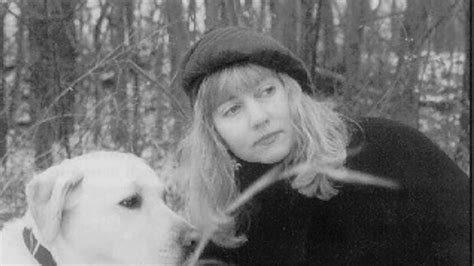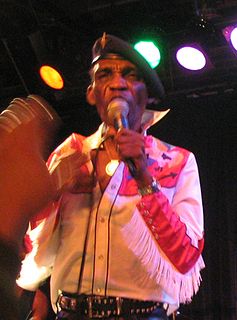A Quote by Rita Dove
I think one of the things that people tend to forget is that poets do write out of life. It isn't some set piece that then gets put up on the shelf, but that the impetus, the real instigation for poetry is everything that's happening around us.
Related Quotes
A lot of people think they can write poetry, and many do, because they can figure out how to line up the words or make certain sounds rhyme or just imitate the other poets they've read. But this boy, he's the real poet, because when he tries to put on paper what he's seen with his heart, he will believe deep down that there are no good words for it, no words can do it, and at that moment he will have begun to write poetry.
I'm not going to tell people how to write, but we do have a skill set, and the more we put ourselves out into the world as poets, as a sort of poet of the tribe, as representatives of metaphor, and try to claim space for metaphor in the inner life, that's going to be important and be helpful to poetry and bring a tension for poets writing about whatever they choose.
I'm pretty obsessive-compulsive and I'm very fast. I tend to not write for a long period of time until I can't not write, and then I write first drafts in gallops. I won't eat right. I forget to do my laundry. I have a dog now, and I have to remember to walk him. When I write, that takes over and I can't do anything else. There's something exciting about that free fall, but then my life gets really screwed up. I've lost lots of relationships because of my having to ignore everything.
When you think intensely and beautifully, something happens. That something is called poetry. If you think that way and speak at the same time, poetry gets in your mouth. If people hear you, it gets in their ears. If you think that way and write at the same time, then poetry gets written. But poetry exists in any case. The question is only: are you going to take part, and if so, how?
I tend to like the way poets form communities. Writing can be lonely after all. Modern life can be lonely. Poets do seem to be more social than fiction writers. This could be because of poetry's roots in the oral tradition - poetry is read aloud and even performed. I'm just speculating, of course. At any rate, because poets form these groups, they learn from one another. That is one of the best things about being a poet.
People tend to set themselves up in patterns; something happens, it hurts them, then something similar happens, and - it's happened again! It seems much bigger then, and they get worried and go through life looking for that thing, and because they're so concerned and looking for it, when anything that happens resembles that thing, they're sure it's happening again. So sometimes people think things are repeating even when they're not.
I turn sentences around. That's my life. I write a sentence and then I turn it around. Then I look at it and I turn it around again. Then I have lunch. Then I come back in and write another sentence. Then I have tea and turn the new sentence around. Then I read the two sentences over and turn them both around. Then I lie down on my sofa and think. Then I get up and throw them out and start from the beginning.
I loathe the trivialization of poetry that happens in creative writing classes. Teachers set exercises to stimulate subject matter: Write a poem about an imaginary landscape with real people in it. Write about a place your parents lived in before you were born. We have enough terrible poetry around without encouraging more of it.
Every day on the set, things change. You move things around. The actors are creating the roles and bringing them to life, and bringing the moments to life, as they happen. That's the best thing about television. I think it gets misunderstood, when there's one credit that says, "Written by," because that's certainly not the way it happens, in real life.
I almost always write everything the way it comes out, except I tend much more to take things out rather than put things in. It's out of a desire to really show what's going on at all times, how things smell and look, as well as from the knowledge that I don't want to push things too quickly through to climax; if I do, it won't mean anything. Everything has to be earned, and it takes a lot of work to earn.







































